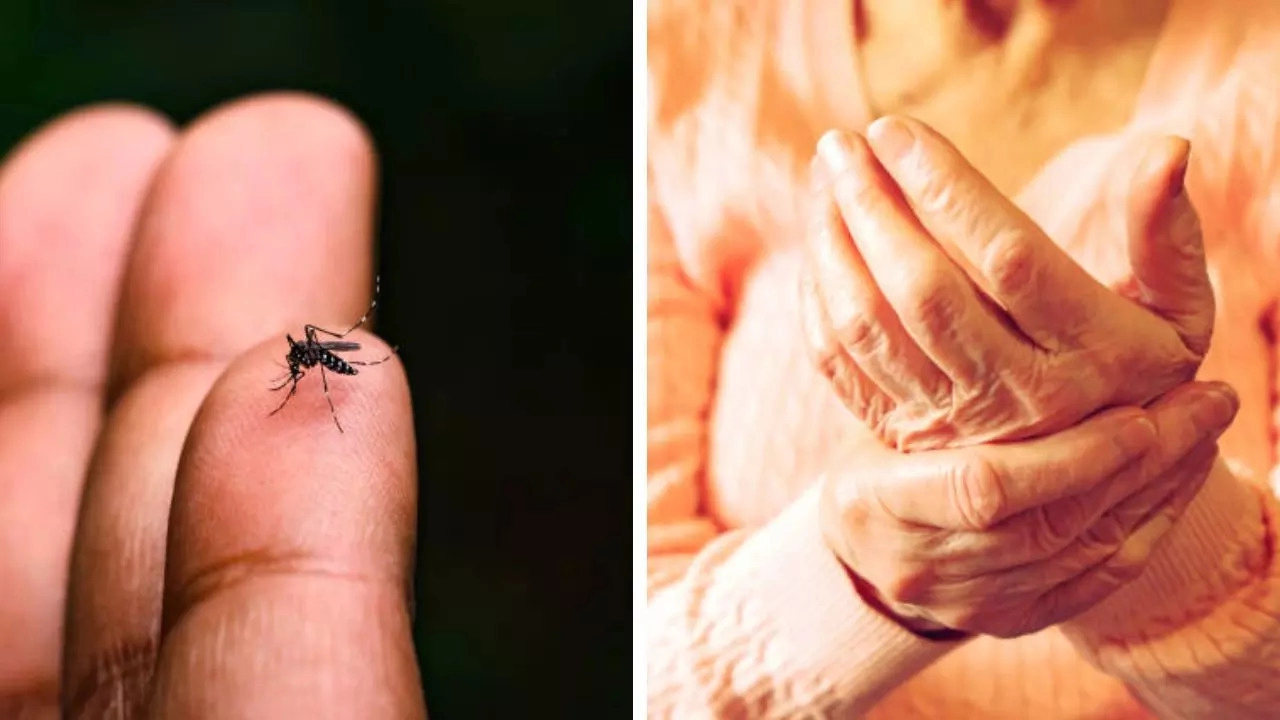Ashima Sharda Mahindra • 03 Aug 2024
Is Chikungunya More Dangerous Than You Think? All About Debilitating Arthritis Caused By The Mosquito-Borne Virus

Even though it rarely causes any life-threatening problems or death, the condition can lead to many serious complications
Chikungunya is a viral mosquito-borne illness which means "bends you up" or "stooped walk" because the infection causes severe joint and muscle pain. Its numbers usually rise during the monsoon season when mosquito breeding begins and leads to a series of symptoms that can be debilitating and bring down your immunity levels.
Even though it rarely causes any life-threatening problems or death, the condition can lead to many serious complications. Chikungunya starts with fevers and aches, like malaria and other mosquito-borne diseases. But what distinguishes the virus is that it also brings severe joint pain, which dwindles over a few weeks, though it can leave some people with chronic arthritis.
"Most patients feel better within a week. However, joint pain can be severe and disabling and might persist for months. In some cases, joint pain is so extensive that patients find it difficult to mobilize to do activities of daily living. Elderly patients also tend to get bed-bound,” Dr. Divya Gopal, Consultant, Internal Medicine, Sir. H.N. Reliance Foundation Hospital told Times Now.
Even though many people can get better without any symptoms after a week or two, joint and muscle pain in several others can continue for years – in a condition known as chikungunya arthritis. Dr. Gopal said the condition affects at least 40 per cent of those who become infected with the virus.
Signs and symptoms of chikungunya arthritis
Doctors say the symptoms of chikungunya typically appear 3-7 days after the bite but can range from 1-12 days, and include:
- High fever
- Severe joint and muscle pain which becomes debilitating, and can be bilateral and symmetrical
- Headache
- Swelling and inflammation in the joints
- Rash
- Nausea
- Fatigue
- Conjunctivitis
Ways to prevent the infection
Doctors advise adults who are at high risk of getting chikungunya to get a vaccine. One vaccine is approved by the US Food and Drug Administration - an injection of a weakened chikungunya virus and the vaccine is given in one dose.
Also, according to experts, if you are traveling to an area with known outbreaks of chikungunya, take care to prevent getting the infection. Because chikungunya isn't spread from human to human but by mosquitoes, preventing bites is your best protection. Follow these tips:
- Use an insect repellent that has DEET or picaridin. Check that it's registered by the Environmental Protection Agency
- Wear long sleeves and pants
- Remove standing water when possible
- Protect yourself indoors with screens, air conditioning, and mosquito netting
- If you're pregnant, especially late in your pregnancy, don't travel anywhere with a chikungunya outbreak. The virus can be passed on to your baby and cause serious complications
Get Latest News Live on Times Now along with Breaking News and Top Headlines from Health and around the world.